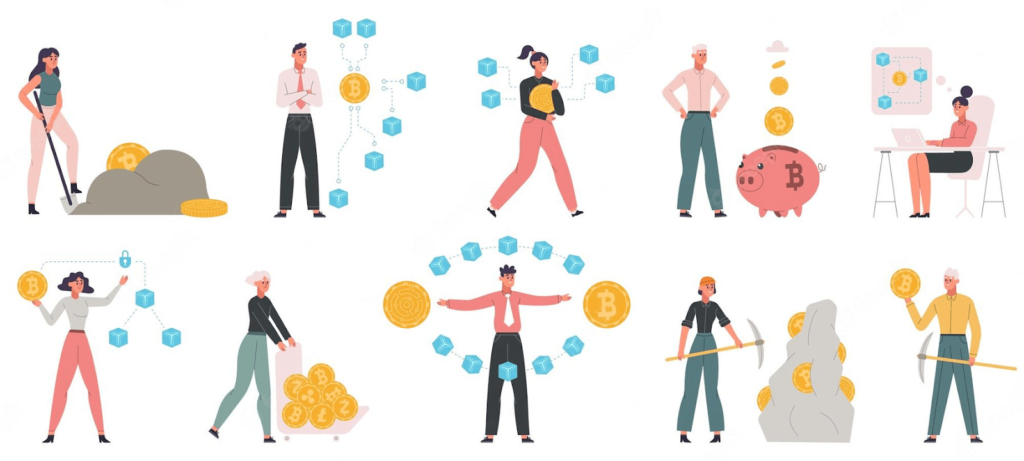May 5, 2022
What FinTech Industry Challenges Are CTOs Worried About in 2022?
Table of content
FinTech (or financial technology) is a famous term that describes the software, mobile apps, and other technologies that are developed to improve and automate outdated forms of finance for businesses. FinTech includes everything from basic mobile payment applications to complex blockchain projects that provide encrypted transactions.
The digital revolution has significantly enhanced various business areas, where financial technologies are an immense part of the transformation. Insurance companies, banks, and trading platforms are now turning to FinTech app development to facilitate their communication with users and ease operations. Experts believe that the FinTech industry is projected to grow at an average rate of about 12 percent in the upcoming years and reach a revenue of 188 billion euros by the end of 2024.
However, with the growth of popularity of the FinTech sector, the industry faces lots of challenges. In 2022, the FinTech ecosystem will work with Web 3, adapt blockchain, see the appearance of “super apps,” and more things that will boost the whole working process of this domain.
We curated this article to discuss the main challenges faced by FinTech companies and ways to overcome them. Let’s get started.
Book a Free Call!
Learn more about our expertise and get a detailed approach and solution for your specific case
Book a callWhat are the Challenges in the FinTech Industry Today?
Fintech Cyber Security
The use of FinTech innovations increased by 72% during 2022 within Europe, which has been driven mainly by immense investments. However, as with any rapid growth, the sector started to experience several unintended consequences. The primary one was related to new security concerns. It is not surprising that cybercrime is on the rise today and not only in the FinTech space. According to a report, every 39 seconds, new attacks on users’ profiles appear. Fintech companies are suggested to be the main target of cyber hackers in 2022.

This is because people hugely rely on digital money and prefer to manage it online instead of using cash. Therefore, FinTech companies and their applications have lots of sensitive user data that they have to protect in advance. As a result, even large market giants like popular banks and brokers suffer from these threats from time to time. In order to ensure a high level of security, companies may opt for tech advancements that allow for better data protection. For instance, two-factor authentication and biometric authentication work pretty well, and the practice shows that applying this protection can save the situation when someone is trying to steal the data.
Data encryption and obfuscation are also a great choice for those running FinTech apps. You can also apply notifications in real-time to let users know when someone wants to enter their profile in order to prevent threats. However, it is always best to make sure your app is secure and use several points together for a higher level of protection.
Lack of Tech Expertise in Mobile App Development
Among FinTech challenges in 2022, lack of tech expertise is almost the main one. The development of high-quality and safe FinTech solutions, such as banking apps that will also have smooth functionality, ultimately requires in-depth expertise and solid background. Not everyone is able to craft an in-house team of skilled engineers who are aware of the newest tech advertisements to make sure the app has a high-security level without compromising the quality.
As a result, more companies now choose to outsource FinTech app development to get a well-thought-out application. A ready-made team usually understands financial projects and minor points that have to be followed for success. You can hire an outsourcing team that has expertise in FinTech app development with real-life cases to make sure your app will be done by professionals only. In addition, outsourcing helps to reduce costs for development in the long run and lets you focus on more vital things like marketing.
Use of Modern Technologies
Even though the FinTech sector grows apart from other tech innovations, it is hard to resist new technologies that boom in the market today. And what is more, there is no valuable reason to avoid using them in financial software. This is because these digital initiatives seem to only drive the popularity of these apps and generate more revenue for the industry.
Technologies like artificial intelligence, blockchain integration, big data, and machine learning can bring valuable benefits for companies looking for more clients and business opportunities and who also want to reduce costs. However, companies will also require experts to bring these ideas to reality to reap benefits instead of struggling with unsuccessful attempts.
Industry Regulations
Regulatory compliance is also one of the most vital challenges in the FinTech industry. This is because of the immense increase in regulatory fees that relate to earnings and credit losses after the 2008 financial crisis. Therefore, when developing an app, you need to make sure the software is compliant with all vital points approved by the government. As a result, this may strain the resources of your product and even affect the ability to correlate data from disparate sources.

In order to solve this issue, the best advice is to hire a legal consultant that will be responsible for training, clarifying plans, and collaborating with your team to make sure that the final product meets the market requirements and your personal needs.
Winning and Nurturing User’s Loyalty
As we mentioned before, cybersecurity is a popular issue in the financial sector. Threats are common, and users also know about them. As a result, it might be challenging for FinTech apps to get users’ trust and loyalty. This is a complicated task for startups who just entered the market and have lots of competitors. Alongside gaining trust, it is essential to prove the data protection and top-notch quality of their product.
It is worth noting that you won’t be able to gain or support users’ loyalty and trust within one day. It should become your habit to always nurture your users and offer the best solutions for their peace of mind. It can be achieved through several main directions: credibility, collaboration, and outstanding customer experience.
This can be earned through ensuring transparency of every company’s activities. You can also create customer communities and events and constantly interact with your customers to learn more about what they like or don’t. Outstanding customer experience can be achieved by making sure your service meets their needs and through pleasant UX/UI design.
What are FinTech Opportunities in 2022?
Big Data & AI Integration
According to Accenture, approximately 79% of bankers worldwide think that artificial intelligence (AI) will significantly boost the whole experience of FinTech apps and completely change the way banks fetch data and work with customer satisfaction.
Big data and AI have already entered most organizations worldwide, and we can meet these tech innovations almost in every app or service we use on a daily basis. By using big data, companies are now able to collect users’ data, like social status, financial history, behavior, and habits, as well as an in-app activity that gives them insights into what they like and don’t like.
In addition, this is especially vital in terms of credit ratings and offering high-risk banking services. With the adoption of big data into the FinTech app, AI then helps simplify the entire process of detecting fraud, performing a risk analysis, and easily managing transactions.
However, it might be hard for most companies to add these tech advertisements into their apps. Therefore, it is always best to use AI Development Services and make sure everything is working the way it should and boost the effectiveness of the application.
Blockchain Integration
Just like with AI, there are many organizations that like to use blockchain to boost the security of their apps. Even though some are still unsure whether they should use blockchain, other companies consider it an excellent solution for smooth data exchange.
However, the FinTech industry can significantly benefit from implementing a blockchain. This Is because it allows financial organizations to analyze and track every transaction and prevent any threats while also keeping all this data in one place with no hassle.
While large companies are still considering blockchain implementation in their products, startups in the financial sector are huge fans of this technology. This is because it is not easy to integrate blockchain technology, especially into pre-existing apps, without rewriting something. However, experienced development companies will easily perform this task without specifying the quality of the software. Check our Blockchain Development Services.

Effective Marketing Tactics to Acquire Customers
Speaking generally, FinTech companies usually struggle with brand promotion and learning their target audience. This is because they believe that the fact that the companies already provide financial services is enough to reach an audience. However, the modern world requires an understanding of marketing strategies and in-depth learning of what users need.
To make sure your product differentiates itself from all the rest and you can get the needed audience, you will need to create the concept even before the development process and enhance it every day, learning the market. You will probably need a team of marketers who also has experience in the FinTech space. Make sure the app itself contains unique features like we mentioned before and delivers a truly new way for people to manage their money.
However, users won’t expect that you offer the best product. You need to always cater to their needs and know every pain point to overcome competitors in this challenging market. In addition, a strong marketing campaign will also work great when you advertise and collaborate. This helps you stay in demand and create a strong brand name that will work for you in the long term.
How Can Interexy Help?
Being a trusted app and web development company, Interexy has an in-depth understanding of the FinTech ecosystem and all sub niches the industry has. Our team consists of only high-quality engineers, designers, and blockchain experts who have the required experience in this domain. We have worked on many projects in the financial sector, and we always monitor the market looking for new tech advertisements that we can bring to our clients.
Whether you want to craft a FinTech app from scratch, boost the exciting app with AI or blockchain, or even need marketing services, Interexy can cover your needs in a custom and efficient way. Check our FinTech app development services to learn more about our solutions for your product!
Final Thoughts
The FinTech industry is growing today. More and more traditional banks are turning to mobile apps and websites to gain more users and stay in demand during the crisis and unexpected situations. Like any industry in its development stage, financial organizations may face several issues when crafting their apps. FinTech opportunities and challenges are equal, and they have to be learned before or during the development by any CTO of the FinTech app. We crafted this guide to help you learn about challenges faced by FinTech companies and show the best ways you can overcome them. And if you need an experienced team for your current project, let’s book a free consultation and discuss your problems!
FAQs
What is the biggest challenge in FinTech?
Even though lack of tech expertise in the FinTech space plays a key role for some companies, the main challenge relates to cybersecurity.
What are the risks of FinTech?
High volumes of payments, transactions, sensitive user data accounts, as well as the immense growth and implementation of tech advertisements leave FinTech apps highly vulnerable to theft.
What is the potential of FinTech?
FinTech applications provide the high flexibility required to deliver cheap, accessible, and efficient products and services, while banks can’t offer this opportunity.















